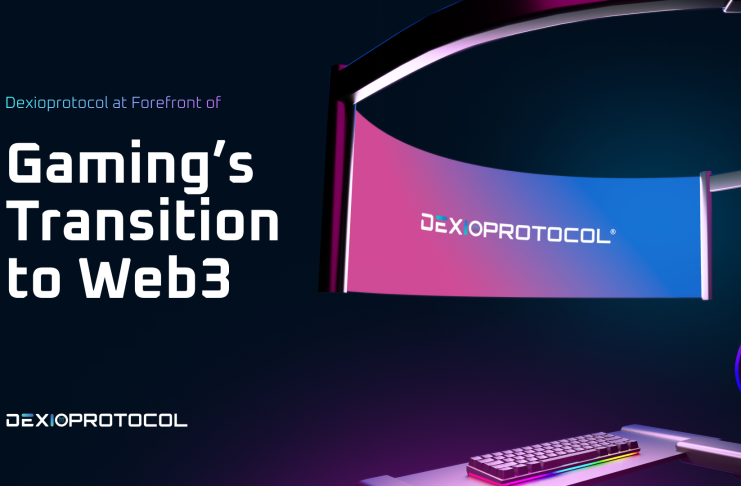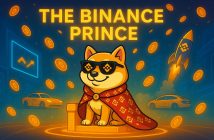Gaming is the world’s largest entertainment industry, and web3 is poised to change it forever. Perhaps more precisely, it is the mass appeal of gaming that looks set to show the world exactly what the blockchain, digital ownership, and community-governed ecosystems look like. Predicted to grow to a $250 billion dollar industry before 2023 has even got started, almost every analyst agrees that gaming, esports, and the virtual worlds we daily inhabit will become an ever more crucial segment of the global economy.
This is before we even begin to apply the multiplicative effect blockchain, crypto, the metaverse. This is before we even account for the thousands of developers sweeping into web3 and blockchain gaming to expand the skill set in the space. This is before the general public has really woken up to exactly what NFTs, digital ownership, tokenized ecosystems can do for their benefit in gaming – even as someone who is completely passive and disinterested about the ‘web3’ features of a particular game.
The Problem with Current Live Service Models in Gaming
Till now, the classic model in gaming has been a centralised provider that makes and sells you the game, with them owning every aspect and asset of it and you, the end user, taking ownership of one copy. Then, as ‘live service’ developed, and online games became more organic, contiguous, and ongoing, now users pay a hybrid of one off fees, subscriptions, or microtransactions to gain cosmetic (and sometimes not so cosmetic) upgrades in game. These games can be free to play, and often are to lure in players with free content in the hope they stick around and start buying cosmetics and power ups at the store.
However one thing remains constant in all these models, the player forking over cash for in-game cosmetics isn’t actually buying anything. Instead they are simply ‘renting’ the item off the centralised provider. That provider can change a player’s in-game account at any time (let’s be real, they rarely do – but the point holds). More like a player can be banned from using a service for an innocent mistake. A player who spends hundreds of dollars and thousands of hours can find all their work instantly lost at the wrath of a vindictive GM, But, you might be protesting, these are fringe cases.
The economic aspect is perhaps more persuasive. Players who have spent hundreds on in-game items only to find the next patch renders them obsolete do feel aggrieved. Or what if you have chanced upon an extremely rare sword your character has no ability to wield. Why can’t I swap it for the magic bow and arrow my friend picked up in game? Oh wait, you can I say? -but only by paying exorbitant rental fees and all the real money goes to the centralised provider anyway, at the double expense of any meaningful gameplay.
How Web3 Puts Players First
Rent-seekers damage vibrant economies. Real, organic, ‘hot money’ economies are what lead to explosive growth. A system where everyone shares in the profits generates a virtuous circle of reinvestment, evangelisation, and genuine access. A provider does not need to exert total control over its in-game economy in order to profit from it, nor need to rule by diktat to create incredible games.
Countless online games, like Runescape, EVE Online, and Rise of Nations, to name a only a handful, have expanded and grown far beyond their developers original intention by the communities that play them, no matter how inhibited they are by the claustrophobic mechanics of their ancient tech.
Web3, then, using digital ownership, will put value earned by an in-game ecosystem into the hands of the players that play the game. That is the central thesis of web3 gaming. Not ‘play to earn’ (a concept that has become quickly rubbished by the wider crypto community), but play to own (P20). The idea that in-game assets that you buy, you earn, and you work for are yours as much as the mobile phone or desktop you use to play the game.
Successful gaming ecosystems emerge because of the players. Why shouldn’t they be rewarded? A far cry from ‘paying them to play’, ownership of in-game assets through NFTs means players get to join in the success and perhaps play a role in shaping and governing the games they adore
Dexioprotocol at the Forefront of Web3 Gaming’s New Era
This, then, is the ultimate promise of web3 gaming, and the ultimate promise of a new gaming ecosystem that is flourishing to take advantage of the trend, Dexioprotocol. Within the DexiGameVault, players can find a beautiful array of mobile games with ownership economies and metaverse integration.
The stand out is DexiDragons. In it, players collect, hatch and care for their cute team of dragon monsters before taking them into battle against other players in frenetic PvP competition.
Up for grabs are prizes ranging from DexiCash, gaming assets, NFTs, and even crypto. DexiDragons leverages the blockchain to have dragons, and the equipment you can give them, as NFTs – alongside a host of customisable add-ons, from ninja shoes to circus hats As players will truly own their dragon monsters, they will be organically invested in their progress, and even accrue value as their dragons prove themselves on the field of battle – which plays like a top down team shooter with power ups galore.
Other games include DexiKnights, which boasts arcade style combat as knights duel to the death in a richly detailed and vibrant mediaeval world, collecting epic swords and armour as NFTs. The lineup is rounded out with DexiCarnival, which contains fun, bitesize arcade mini-games where players can spend their DexiCash (Dexioprotocol’s non-blockchain currency) against other players for their chance to win on-chain and off-chain prizes. The DexiGameVault is only set to expand, with the Dexioprotocol open to outside game developers to work on their own games and assets in the CreatorHub.
DexiDragons and other games in the DexiGameVault are only a small part of the Dexioprotocol ecosystem, which has burst onto the scene in a myriad of verticals, including AR and the metaverse.
Their games are already available to download on iOS and Android (a far cry from the hundred ‘work-in-progress’ blockchain games on the market) and players are already flocking to the Dexiverse and unearthing the treasures, both experiential and actual, waiting inside.
Web3 is – especially with crypto reentering Spring after a gruelling Winter – ready to explode into the mainstream. Dexioprotocol’s library of games, especially with the breakout success of DexiDragons, will be sure to lead the charge in opening the eyes of the mainstream gamer to the digital ownership inherent in web3 and how they, the player, stand to benefit.
Disclosure: This is a sponsored article. Please do your research before buying any cryptocurrency or investing in any projects. Read the full disclosure here.




